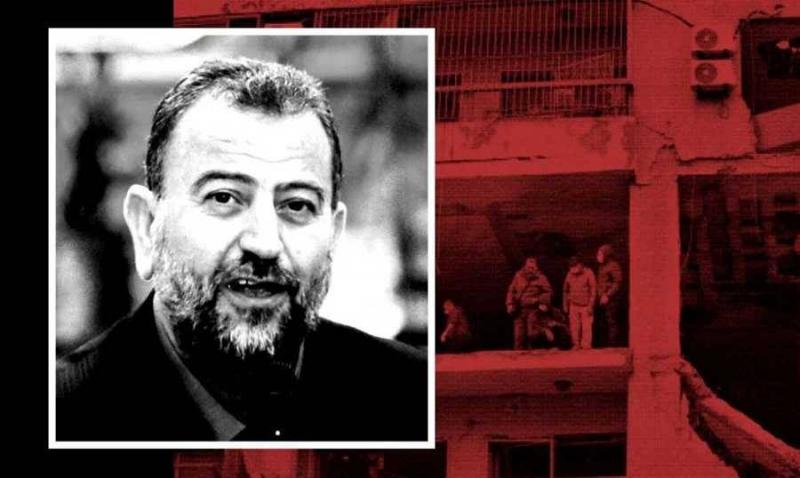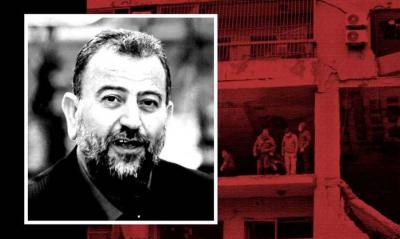Palestinian sources confirmed to "Nidaa Al-Watan" that Hamas officials in Lebanon have tightened their security measures following the assassination of the deputy head of the political bureau, Sheikh Saleh Al-Arouri, along with several of its leaders and cadres in his office in the southern suburbs of Beirut on the evening of Tuesday, January 2, 2024. According to the sources, the movement's officials have taken precautionary measures in their residences, movements, and meetings after the Al-Aqsa Flood operation carried out by Hamas on October 7, 2023, against the Gaza envelope, particularly after Israeli Prime Minister Benjamin Netanyahu threatened to eliminate Hamas leaders anywhere in the world, whether in Gaza, the West Bank, Lebanon, Turkey, or Qatar.
Ayman Shana'a, the national relations official for Hamas in Lebanon, stated to "Nidaa Al-Watan" that Netanyahu has threatened multiple times to assassinate the movement's leaders abroad to escape his internal crisis. He added that they have taken these threats very seriously and implemented precautionary measures, but ultimately, fate has determined the outcome. He emphasized that as resistance fighters, they are destined to shed blood and have previously sacrificed the movement's founder, Sheikh Ahmed Yassin, Dr. Abdul Aziz Rantisi, Ahmad Jabari, and others in the pursuit of liberating Palestine, affirming that the movement's leaders have taken additional preventive measures in the Lebanese arena.
Meanwhile, responsible sources within the movement have not hidden their fears of repeated assassination attempts, asserting that the rules of engagement have changed after Sheikh Al-Arouri's assassination and are no longer as they were before. They explained that the operation occurred in the southern suburbs, which represents a closed security square on one hand, and outside the area south of the Litani River on the other, imposing new procedures.
Some of these measures were evident during the funeral ceremonies for Sheikh Al-Arouri, Azam Al-Aqra, and Muhammad Al-Rais in Beirut, specifically from the Imam Ali Ibn Abi Talib Mosque in the New Road to the martyrs' shrine in Shatila, amid heavy security procedures.
In light of these actions, investigations into the assassination are ongoing to determine the details. Military experts speculate that the strike may have been carried out by a warplane rather than a drone, from a long distance, which is why the sound of the strike or the roar of the aircraft was not heard. They clarify that the missiles were targeted and hit the objective vertically, from above, rather than horizontally through a window or balcony as is customary. Of the six missiles fired, only two detonated, and two others penetrated the ceilings of two floors before hitting their target.
While there is much discussion within Hamas about the need to absorb both the shock and the tragedy, as Sheikh Al-Arouri is the foremost figure for the movement in Lebanon, holding the position of deputy president and being responsible for the West Bank, the response is already determined and its nature is being studied. A state of anger and sadness pervades the Palestinian camps in Lebanon, where spontaneous popular marches have erupted, denouncing the crime and demanding retribution for Al-Arouri and his companions.




